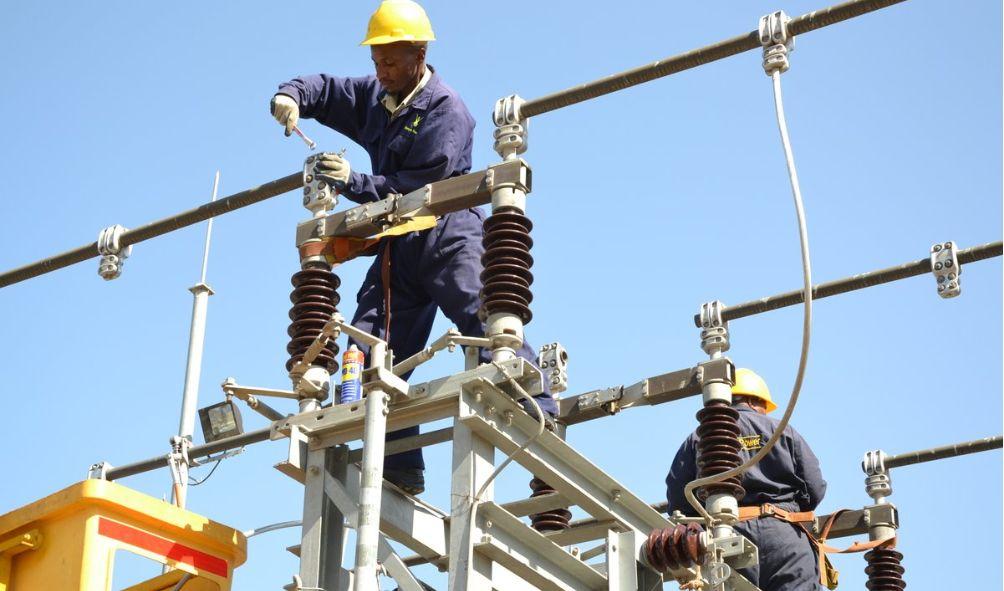Breaking Kenya Power’s Monopoly: MPs Unveil Plan
If MPs approve a proposition in a parliamentary committee report, consumers will have the option of purchasing electricity tokens directly from Independent Power Producers (IPPs) or Kenya Power and Lighting and Company (KPLC).
To break KPLC’s monopoly, the National Assembly’s energy committee has proposed that IPPs using geothermal energy sell power directly to consumers, with the assistance of KenGen, as a means of reducing the country’s expensive electricity prices.
The proposal is contained in a draft report drafted by the committee, which is presently in Mombasa writing a report on how to reduce the country’s high electricity prices.
The MPs want consumers to have the option of purchasing power from KPLC or IPPs, whichever is less expensive, according to highly placed committee sources who spoke to the Nation.
If approved by MPs when the House resumes sitting on September 26, the proposal will be a departure from the current arrangement in which IPPs must sell to KPLC for customers to purchase from them.
Before being permitted to enter the market, the proposal requires IPPs that consent to such an arrangement to reduce their prices by comparing them to those of KenGen.
“The primary objective of this proposal is to offer consumers a choice of where to purchase tokens and to provide IPPs with direct customer contact. It will be up to the ISPs to determine invoicing. If a customer considers KPLC to be too expensive, they can elect for an ISP,” a source explained.
ALSO READ: Summoning of Energy CS and Kenya Power CEO: Probe into Major Blackout
To accomplish this, the legislators stated that they would alter the law and, if possible, the Power Purchase Agreements (PPAs) signed by the IPPs.
According to sources within the committee, Kenya Power opposed the agreement due to existing contracts with the IPPs, but the MPs insisted they would do whatever it took to not only give consumers a choice but also reduce the price of electricity.
The legislators also seek the termination of contracts with five IPPs, who are presently paid a total of Sh23 billion annually in stages. “The Sh23 billion we pay annually translates to nearly Shl billion per month, which is unsustainable. Those must be eliminated,” the source said.
According to the draft report, the contracts will expire 36 months after the government has established sufficient infrastructure to prevent a power void when the five IPPs depart.
Some members of Congress wanted the contracts to expire after 24 months, but the technical team advising the committee disagreed, arguing that this was too short a period for the government to put in place infrastructure to fill the vacancy.
The committee has scheduled a second meeting with Attorney General Justin Muturi, National Treasury Cabinet Secretary Njuguna Ndung’u, and his energy counterpart Davis Chirchir to make this proposal a reality.
According to the source, Mr. Muturi will counsel the committee on the legal implications of terminating the contracts in the middle of their term, while Mr. Ndung’u will provide the financial implications of what it will cost the taxpayer if the contracts are allowed to run until 2032 versus if they are terminated immediately.
Mr. Chirchir, on the other hand, will describe to the committee how long it will take for the government to install the infrastructure if the contracts are terminated after three years.
ALSO READ: KPLC & Lake Turkana Wind Power Clash: Blackout Blame Game
The meeting was originally scheduled for this week, but it was postponed because the committee had summoned Mr. Chirchir and the KPLC CEO regarding Friday’s outage.
The draft report also calls for renegotiation of the PPAs regarding capacity charges and payment currency, which should be changed to shillings instead of the current US dollar.
In her presentation to the committee, the Auditor General stated that the PPAs signed by the government with the IPPs do not contain an exit clause and that any revision depends on the power producers’ willingness.
The capacity levy is the amount paid to IPPs regardless of whether or not they generate electricity. It establishes the minimal amount of electricity a generator is expected to deliver to the national grid and is compensated regardless of underproduction.
Consumers are charged capacity fees, which contribute significantly to the price of electricity. The committee has also requested that investigators take action against individuals accused of conflict of interest due to their ownership of IPPs while serving as state officials. The MPs are pursuing a former PS and a former agency chief.
Regarding vandalism, the committee proposes punitive measures for convicted offenders. Concerning system losses, the committee recommends that Kenya Power construct additional transmission lines.
The committee determined that some of the losses were premeditated to benefit a handful of influential Kenya Power and government officials.
ALSO READ: KPLC Suffers System Failure, Causes Widespread Blackout
The report is still in draft form and has not been formally ratified by the committee, so it cannot be made public as it has also been submitted to the House of Representatives and it would be against the Standing Orders to do so at this time.
Some of the recommendations may also be altered as a consequence of the Committee’s discussions with the Attorney General, CS Treasury, and CS Energy.
Breaking Kenya Power’s Monopoly: MPs Unveil Plan
